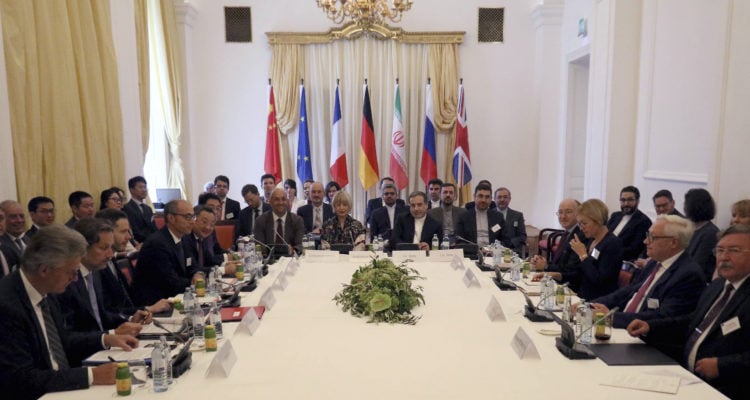|
Getting your Trinity Audio player ready...
|
By WorldIsraelNews.com Staff
The Biden administration has been working on an interim agreement with Iran that would involve some sanctions relief in exchange for partial freezing of the Islamic Republic’s nuclear program, Axios reported Monday evening.
The administration began discussing the proposal with its European and Israeli partners already in January, according to 10 Israeli officials, Western diplomats and U.S. experts, the report said.
According to an Israeli official and a Western diplomat, the report continued, the Iranians have so far rejected the idea.
Last month, inspectors from the International Atomic Energy Agency found uranium particles enriched up to 83.7% in Iran’s underground Fordo nuclear site. Uranium at nearly 84% is almost at weapons-grade levels of 90% — meaning any stockpile of that material could be quickly used to produce an atomic bomb if Iran chooses.
“To the best of our knowledge, we don’t believe that the supreme leader in Iran has yet made a decision to resume the weaponization program that we judge they suspended or stopped at the end of 2003,” CIA Director Williams Burns told CBS’ “Face the Nation” program regarding the nuclear watchdog’s finding. “But the other two legs of the stool, meaning enrichment programs, they’ve obviously advanced very far,” he added.
Israel has reportedly warned the U.S. and European leaders that Iran’s stockpiling of uranium beyond 60% would be crossing a red line and could trigger a military response. Prime Minister Benjamin Netanyahu has said that Iran is his main focus; despite the ongoing protests and unrest in Israel over the government’s agenda for judicial reform, he has been meeting with European leaders to gain support on this issue.
Netanyahu recently traveled to Rome, London and Paris to discuss the Iranian nuclear threat. Although the Biden administration has said that no invitation will be extended “in the near term” to the Israeli leader to visit the White House, Netanyahu met in early March in Jerusalem with U.S. Defense Secretary Lloyd Austin.
“We have a common agenda to prevent Iran from acquiring nuclear weapons and preventing Iran’s aggression, maintaining the security and prosperity of this region, seeking to expand the circle of peace,” Netanyahu said in a press statement after the meeting.
The Axios report notes that the current U.S. approach is similar to that led by the Obama administration in 2013, when Iran and world powers signed the 2013 Joint Plan of Action (JPOA), which included a short-term freeze on parts of Iran’s nuclear program in return for partial sanctions relief.





